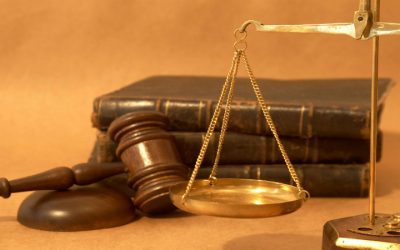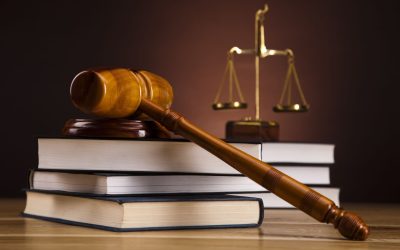Motorcycle accidents often result in severe injuries and significant financial burdens for riders. Due to their smaller size and lack of protective barriers, motorcyclists are especially vulnerable in collisions with other vehicles. When these accidents are caused by another driver’s negligence, victims may be entitled to compensation for medical bills, lost income, and pain and suffering. An experienced motorcycle accident lawyer plays a critical role in proving driver negligence and securing a fair outcome for injured riders.
Understanding Driver Negligence in Motorcycle Accidents
Negligence occurs when a driver fails to exercise reasonable care, leading to an accident that causes harm. In the context of motorcycle crashes, common examples include:
- Distracted Driving: Texting, talking on the phone, or using in-car systems.
- Failure to Yield: Not giving motorcycles the right of way at intersections.
- Unsafe Lane Changes: Failing to check blind spots or signal before merging.
- Speeding: Driving above the speed limit or too fast for conditions.
- Driving Under the Influence: Operating a vehicle while impaired by alcohol or drugs.
Proving negligence requires more than stating that the driver was at fault—it involves collecting evidence, following legal procedures, and presenting a compelling argument.
The Role of a Motorcycle Accident Lawyer
A motorcycle accident lawyer understands the unique challenges of representing injured riders. Their job is to investigate the accident, identify liable parties, and build a case that clearly shows how the driver’s actions caused the crash.
Key steps they take include:
- Conducting a Thorough Investigation: Visiting the accident scene, reviewing police reports, and interviewing witnesses.
- Gathering Physical Evidence: Collecting photographs, skid mark measurements, and damage assessments.
- Working with Experts: Consulting accident reconstruction specialists and medical professionals to support the claim.
- Communicating with Insurance Companies: Negotiating on behalf of the injured party to avoid unfair settlements.
By combining legal knowledge with investigative skills, a lawyer can strengthen the case and improve the likelihood of a favorable result.
Evidence That Supports Negligence Claims
In motorcycle accident cases, strong evidence is essential. A personal injury lawyer will often compile:
1. Police Reports
These reports often contain valuable details about the accident, including statements from involved parties and witnesses, as well as the officer’s initial assessment of fault.
2. Witness Testimony
Neutral third parties can offer credible accounts of what happened before and during the crash.
3. Traffic Camera or Surveillance Footage
Video evidence can clearly show reckless driving behaviors, such as speeding or failure to yield.
4. Medical Records
These document the severity of injuries and connect them directly to the accident.
5. Accident Reconstruction Analysis
Experts can recreate the incident to demonstrate how the collision occurred and why the driver’s actions were negligent.
The best personal injury attorneys know how to gather, preserve, and present this evidence effectively.
Overcoming Bias Against Motorcyclists
Unfortunately, motorcyclists often face an unfair bias that assumes they are reckless or prone to speeding. This stereotype can influence insurance adjusters, juries, and even law enforcement officers.
A skilled motorcycle accident lawyer works to counteract this bias by:
- Highlighting the rider’s safety precautions, such as wearing protective gear and obeying traffic laws.
- Presenting clear evidence that shows the other driver’s negligence was the primary cause of the accident.
- Using expert testimony to dismantle assumptions about motorcycle riding behaviors.
Addressing these biases head-on is essential for achieving fair treatment during negotiations or in court.
The Link Between Negligence and Compensation
Proving negligence is the foundation for recovering compensation in a motorcycle accident case. Once liability is established, a personal injury lawyer can seek damages for:
- Medical Expenses: Hospital stays, surgeries, rehabilitation, and future care needs.
- Lost Wages: Income lost during recovery, as well as diminished earning capacity.
- Pain and Suffering: Physical pain and emotional distress caused by the accident.
- Property Damage: Repair or replacement costs for the motorcycle and related gear.
The amount awarded often depends on the quality and presentation of the evidence, making legal representation critical.
The Importance of Acting Quickly
Time is a key factor in motorcycle accident cases. Evidence can be lost, witnesses’ memories can fade, and statutes of limitations can limit how long you have to file a claim. By contacting a trusted legal partner like Whitney | Whitney | Baldridge | Atkinson promptly, injured riders can ensure their case is built while the evidence is fresh and the facts are clear.
Preventing Motorcycle Accidents Through Awareness
While legal strategies are important after an accident, prevention remains the best protection. Motorcyclists and drivers alike can reduce risks by:
- Staying alert and avoiding distractions.
- Maintaining safe speeds and following traffic laws.
- Checking mirrors and blind spots before changing lanes.
- Respecting each other’s space on the road.
Shared responsibility helps create safer roadways for everyone.
Final Thoughts
Proving driver negligence in a motorcycle accident requires a combination of legal skill, investigative work, and strategic presentation. A motorcycle accident lawyer brings these elements together to protect the rights of injured riders and ensure they have the best chance at securing fair compensation.
With guidance from the best personal injury attorney or an experienced personal injury lawyer, victims can navigate the legal process with confidence, knowing that every effort is being made to hold negligent drivers accountable.


